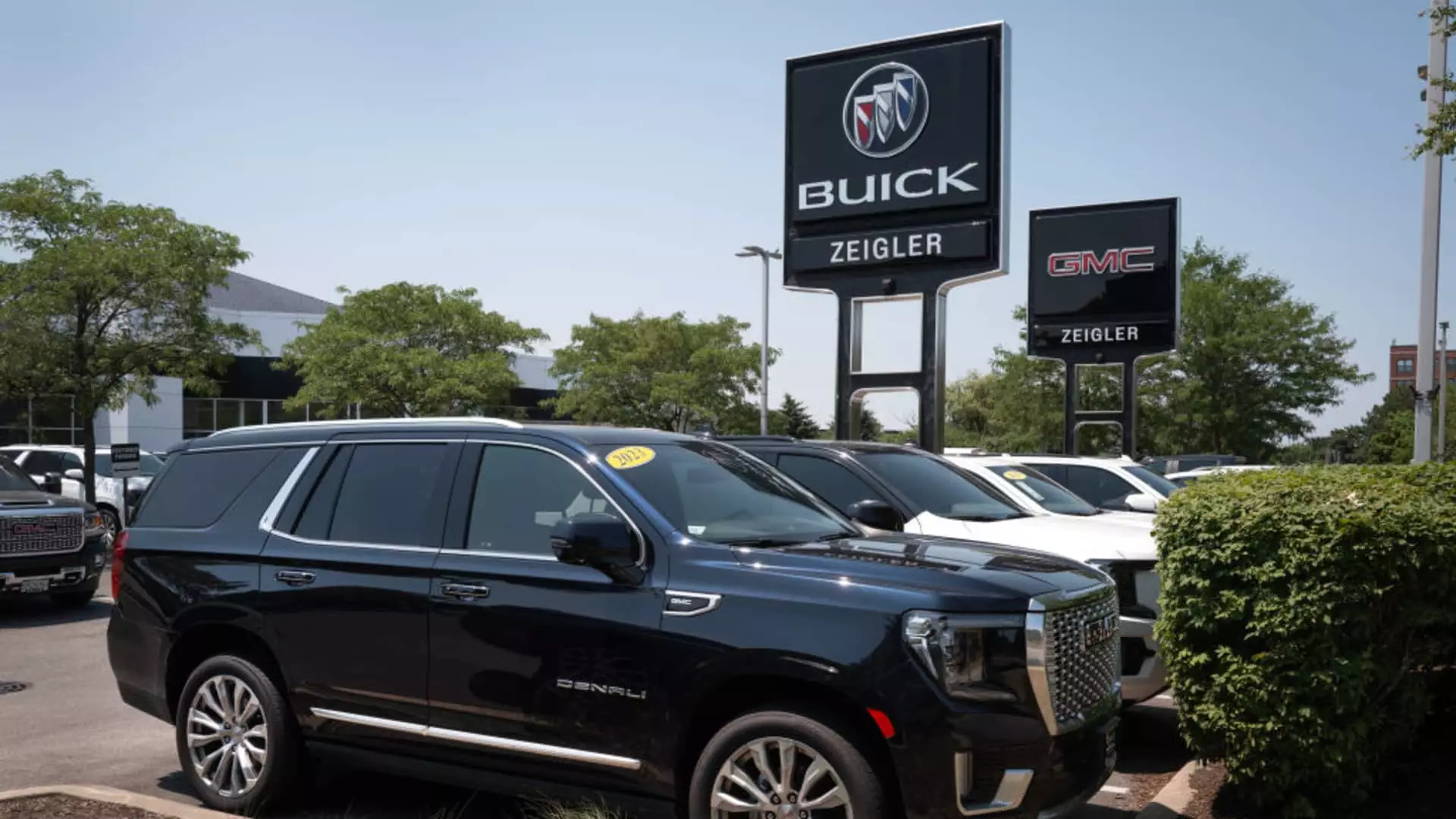General Motors has recently reported its best quarterly sales in over three years. The Detroit automaker recorded sales of 696,086 for the second quarter, marking a 0.6% increase from the previous year. Notable increases were seen in full-size pickup trucks and all-electric vehicles, with EV deliveries jumping by 40% to 21,930 units. Despite these positive numbers, EVs only accounted for 3.2% of total second quarter sales. Sales of GM’s full-size pickup trucks also saw a significant increase, reaching approximately 229,000 units, up by 6% from the previous year.
While GM’s second quarter sales are expected to outpace the overall industry, forecasters such as Cox Automotive and Edmunds predict that second-quarter sales industry-wide are likely to remain stable compared to the previous year. However, retail demand in the automotive sector is facing a slowdown. The recent cyberattacks on CDK Global, a key dealer software provider, have had a significant impact on dealer operations and sales. The ransomware attack on June 19 led to the shutdown of CDK’s dealer management system, affecting a large number of dealerships in North America. This unexpected event disrupted sales during a crucial period for dealerships, potentially pushing some deliveries into the third quarter.
Dealers, including major publicly traded franchise groups such as Asbury Automotive Group, AutoNation Inc., and Lithia Motors Inc., had to navigate through delays and challenges caused by the CDK cyberattacks. Five out of the six major dealership groups use CDK as their primary dealership management system provider, further emphasizing the widespread impact of the cyber incident on the automotive industry. However, industry experts like Jessica Caldwell from Edmunds remain optimistic that sales should not be lost or severely deferred but rather postponed to the third quarter.
In addition to General Motors, Toyota and Hyundai also reported their second-quarter sales figures. Toyota’s U.S. sales totaled 621,549 vehicles during the period, marking a 9.2% increase from the previous year. The Hyundai brand saw a 2.2% increase in sales, with a total of 214,719 vehicles sold. On the other hand, Kia reported a 6.5% decrease in its June sales, contributing to an overall 2% decline in sales for the first half of the year.
Overall, the automotive industry is navigating through challenges such as cyberattacks and fluctuating consumer demand, with companies like General Motors leading the way in adapting to these changing circumstances. As we progress through the year, it will be interesting to see how the industry evolves and rebounds from these disruptions.

Leave a Reply